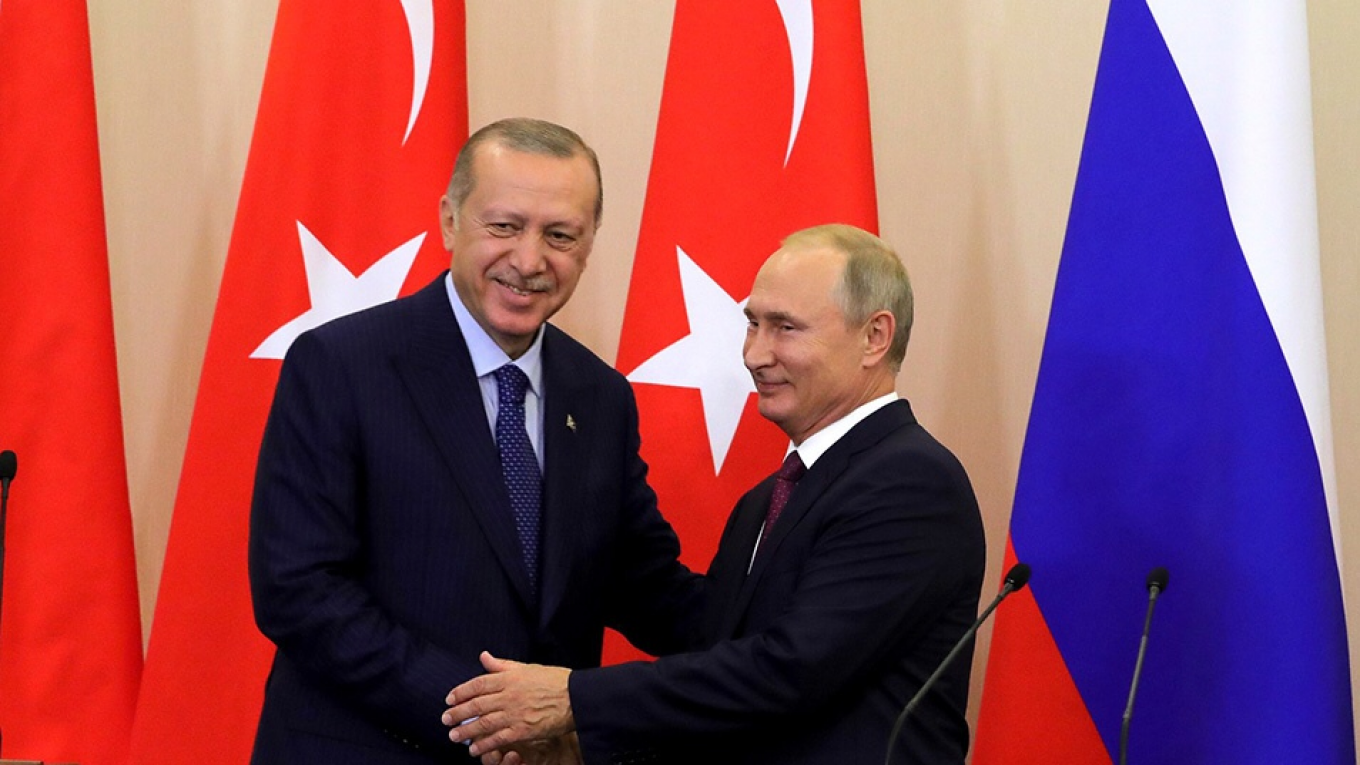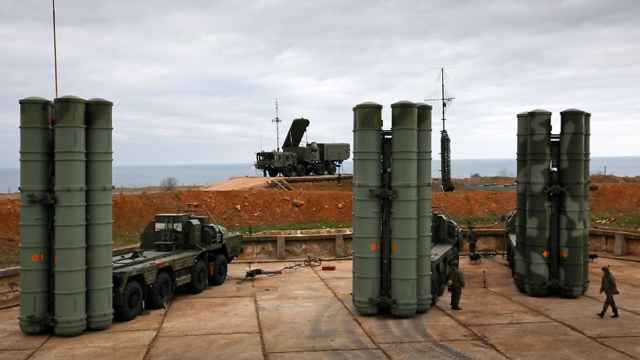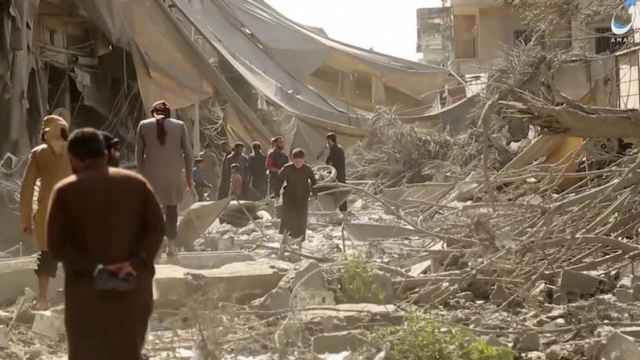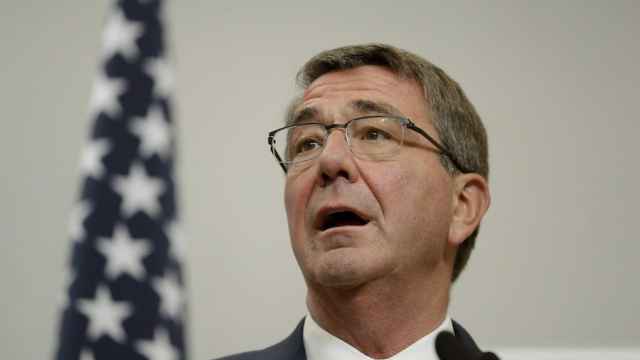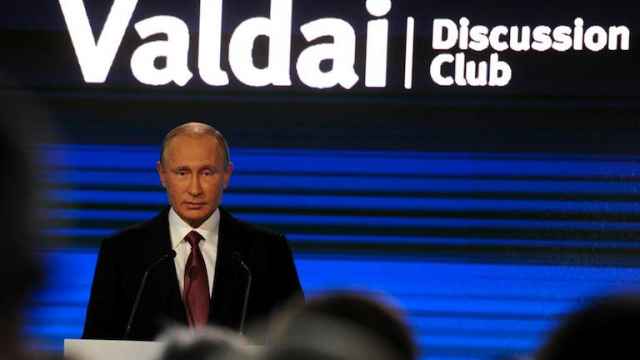The planned U.S. withdrawal from Syria is fueling tensions between Russia and Turkey over control of a key region of the Middle Eastern country once American forces have left.
Russia is pressuring Turkey to agree to an offensive on Idlib, seized by militants linked to al-Qaeda last month, a senior Turkish official said, speaking on condition of anonymity. At the same time, the Kremlin is opposing a bid by Turkey to establish a buffer zone inside Syria to counter U.S.-backed Kurdish fighters.
Russian Foreign Minister Sergei Lavrov on Wednesday indicated that Moscow’s patience is starting to run out over Idlib, saying it can’t accept “the endless existence of this terrorist nest.” Russia “‘will do everything to help the Syrian government and its armed forces to resolve issues concerning the liberation of their territory,” he said.
The subject is likely to dominate Syria talks on Thursday between President Vladimir Putin, his Turkish counterpart Recep Tayyip Erdogan and Iranian leader Hassan Rouhani in Russia’s Black Sea resort of Sochi. It’s their first meeting since U.S. President Donald Trump announced in December that he’ll pull out about 2,000 U.S. troops from Syria, a move that would change the balance of forces on the ground.
Trump renewed his pledge last week in his State of the Union address even as domestic critics have urged him to avoid a “precipitous withdrawal” that may endanger Kurdish allies fighting against Islamic State in Syria. Russia, Turkey and Iran, which all have forces in Syria, are waiting to see if he’ll follow through on the commitment.
“Everything hinges on the U.S. plans to pull out its troops from Syria,” said Elena Suponina, a Moscow-based Middle East expert.
Final offensive
U.S. General Joseph Votel, who commands American forces in the Middle East, said Feb. 10 that the troop withdrawal is likely to start within “weeks.” His comments came as the U.S.-backed Kurdish fighters started a final offensive to clear Islamic State militants from Syria’s border with Iraq.
Turkish Foreign Minister Mevlut Cavusoglu has signaled that Ankara might agree to a limited Russian-backed Syrian offensive to retake Idlib. That would be a setback for Turkey as it would strengthen Syrian President Bashar al-Assad, who’s seeking to exploit the departure of U.S. troops to take back oil-rich provinces held by the Kurds.
Ankara considers the Kurdish fighters to be terrorists linked to separatists inside its territory. It wants Turkish troops to establish a buffer zone on the Syria-Turkey border, a plan the U.S. supports but which Russia views as a threat to its interests in Syria. While some Turkish troops have already moved to an area near the city of Manbij, Russian officials have said repeatedly they want Syrian forces to ensure security inside the border with Turkey.
“All the comments coming from officials in Russia say pretty clearly that we will not allow a foreign power to control a buffer zone in Syria,” said Yury Barmin, a Middle East expert at the Russian International Affairs Council, a research group set up by the Kremlin.
Security treaty
Putin proposed reviving a 1998 security treaty between Turkey and Syria at talks with Erdogan in Moscow last month, effectively pressing the Turkish leader to restore ties with the Assad regime that Ankara opposes. The treaty obliges Syria to prevent activity on its territory that jeopardizes Turkish security, and allows the Turkish military to cross the border in self-defense if the Damascus government failed to rein in the Kurdish fighters.
The Islamist takeover of Idlib last month left a September truce negotiated by Moscow and Ankara in tatters. While the Russian and Turkish defense ministers called for “decisive” action to secure Idlib at talks on Monday, Turkey fears a military assault could send a new wave of refugees fleeing toward its territory, where some 4 million already live.
“This issue can’t be resolved in isolation,” said Suponina, the Middle East analyst. “It is linked to the situation in northeastern Syria where Turkey has interests too.”
Turkey has convinced the al-Qaeda offshoot to withdraw from areas of Idlib that it took after forcing out rebels backed by Ankara, but increasing attacks by the Syrian army are threatening a fragile situation, said a second senior Turkish official, speaking on condition of anonymity.
“Turkey is trying to stop and postpone any military action in Idlib as much as possible to wait and see how things will unfold after the start of the U.S. pullout,” said Nihat Ali Ozcan, a strategist at the Ankara-based Economic Policy Research Foundation of Turkey. “However, Russia is growing impatient.”’
A Message from The Moscow Times:
Dear readers,
We are facing unprecedented challenges. Russia's Prosecutor General's Office has designated The Moscow Times as an "undesirable" organization, criminalizing our work and putting our staff at risk of prosecution. This follows our earlier unjust labeling as a "foreign agent."
These actions are direct attempts to silence independent journalism in Russia. The authorities claim our work "discredits the decisions of the Russian leadership." We see things differently: we strive to provide accurate, unbiased reporting on Russia.
We, the journalists of The Moscow Times, refuse to be silenced. But to continue our work, we need your help.
Your support, no matter how small, makes a world of difference. If you can, please support us monthly starting from just $2. It's quick to set up, and every contribution makes a significant impact.
By supporting The Moscow Times, you're defending open, independent journalism in the face of repression. Thank you for standing with us.
Remind me later.


